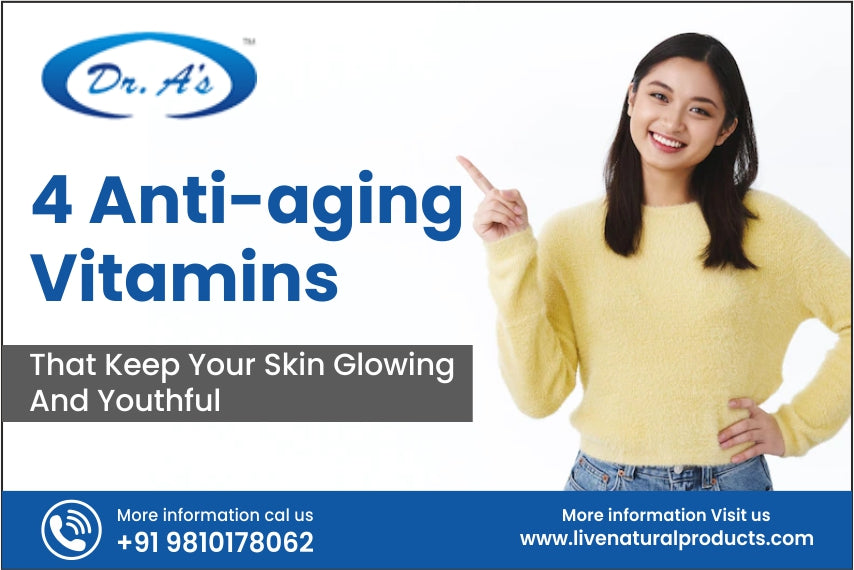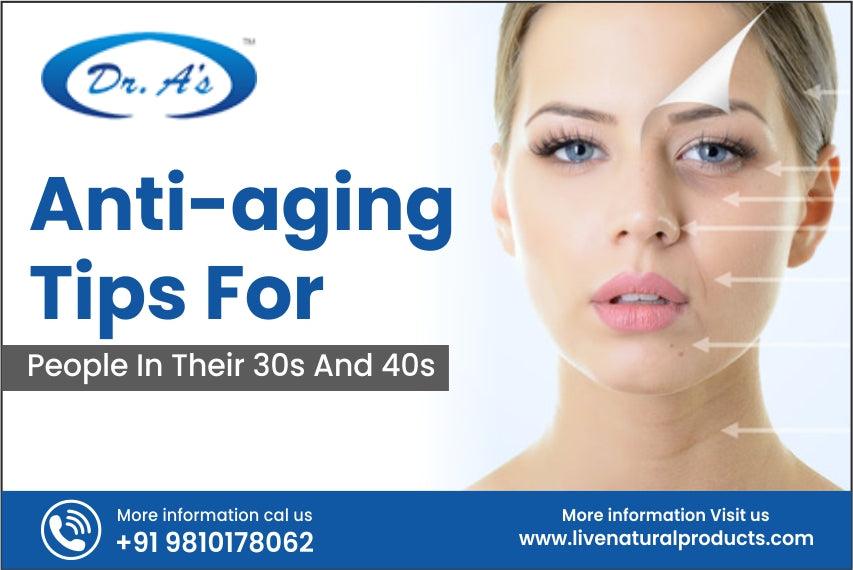4 Anti-aging Vitamins That Keep Your Skin Glowing And Youthful

Aging is a natural and inevitable process. However, the appearance of signs of aging is something no one is ever ready to face. People follow numerous cosmetic products and home remedies just to prevent and get rid of those fine lines, wrinkles, and dry skin that never seem to go. Several beauty treatments are available to correct sagging skin and dark spots. But did you know something as common as vitamins can work miracles in this case?
Table Of Content
- Natural Aging Vs. Premature Aging: What Is The Difference?
- How Can Vitamins Slow Down Aging?
- The Best Vitamins For Anti-aging
- The Bottom Line: Including Anti-aging Vitamins In Your Daily Life
Studies and research have shown that certain vitamins have an anti-aging effect. They would not prevent but surely slow down the aging process of your cells and tissues. This would give your skin a glowy and youthful appearance.
Follow the article below to know more about anti-aging vitamins, how they work, and how you can benefit from them.
Natural Aging Vs. Premature Aging: What Is The Difference?
Aging refers to the gradual and progressive changes in your body characterized by senescence, decreased efficiency of biological functions, and physical debilitation. There is no particular age when the process of aging begins. Some individuals show the signs of aging at an early age, while in others, it appears much later.
While aging is a natural process that cannot be prevented, early or premature aging is a matter of concern. It is characterized by the appearance of signs of aging from the early years. The rapidly changing environmental condition and physical and emotional stress play a significant role in premature aging.
Another important and probably the most significant factor is exposure to sunlight. Due to the depleting ozone layer, the sunlight we receive now contains high proportions of UV rays which harm your skin. For instance, a study showed that even minimal sun exposure for a few minutes could reduce the amount of vitamin C in your body by 30%.
A healthy lifestyle and diet changes can help you prevent premature aging. Regular use of sunscreen is also a must in this case.
How Can Vitamins Slow Down Aging?
The deficiency of certain vitamins or their inadequate intake can disturb the natural balance of your essential bodily functions. It often leads to the accumulation of free radicals and increased oxidative stress in the body. Senescence, a major factor in aging and age-associated diseases, is closely related to high oxidative stress.
It is characterized by the accumulation of senescent cells. These cells have lost their ability to divide but still do not die even when they should. Due to this feature, these are also called zombie cells.
A healthy level of vitamins in your body can neutralize and prevent the formation of free radicals. It also prevents senescence and kills the zombie cells in your body.
The Best Vitamins For Anti-aging
Vitamins are naturally occurring compounds. These are vital for your body and participate in various essential bodily functions. Some vitamins play an important part in preventing premature aging and slowing down the aging process in general. These include:
1. Vitamin E
Vitamin E or tocopherol is well-known for its immunity-boosting and antioxidative nature. It enhances your body’s immune function and regulates your body’s inflammation reaction in response to external factors.
Another remarkable function of vitamin E includes protecting the integrity of the cell membrane. This prevents the cells from external irritants and excess water and nutrients loss.
Tocopherol also stimulates the natural production of collagen in your skin. Collagen is a structural protein that keeps your skin supple and elastic.
This vitamin also fights against zombie cells. Hence, it reduces the oxidative stress in the tissues and prevents the formation of cancerous cells. It also increases cell turnover and keeps up a good level of healthy cells in the skin. This makes this one of the best vitamins for aging skin.
You can take vitamin E as oral supplements or through natural sources like oats, nuts, grains, and dairy products. Topical ointments containing vitamin E are also available that are equally effective for your skin.
2. Vitamin C
Vitamin C or ascorbic acid is among the most potent antioxidants known. It also enhances your natural immunity and fights against cold and flu. The antioxidative property of this vitamin neutralizes the free radicals, thus relieving the oxidative stress in your body. Through this process, ascorbic acid removes the zombie cells, prevents their further production, and increases cell turnover.
The most remarkable vitamin C anti-aging function for the skin is stimulating collagen production. It also links the collagen molecules in your skin and reduces fine lines and wrinkles. This adds firmness and elasticity to your skin and makes it look more supple.
Apart from this, ascorbic acid also inhibits the production of any abnormal pigment in your body. This helps in reducing dark spots and preventing them from showing up again.
When taken as an oral supplement, vitamin C benefits you on cellular and organ levels. Topical vitamin C ointments are also known to have skin brightening properties. You can also derive this vitamin from natural sources like lemon, oranges, and other citrus fruits.
3. Vitamin A
If you keep up with the beauty industry, you must have heard of retinol. It is nothing but a derivative of vitamin A. Also called retinoid, this vitamin consists of compounds like retinal, retinol, and retinoic acid. While these offer numerous benefits, retinol is the star ingredient in several skin-correcting products.
Vitamin A is among the most effective compounds known to slow down the aging process. It also stimulates the natural production of collagen, keeping your skin free from fine lines and wrinkles and increasing cell turnover.
Retinol is highly effective in fighting against acne and acne spots. In some cases, it also helps in the treatment of psoriasis.
You can either take vitamin A supplements or ointments or include their natural sources like broccoli, carrots, liver, and spinach in your diet.
4. Vitamin B12
You might have noticed that the incidence of skin dryness, redness, and inflammation increases with aging. This is because as you grow older, the ability of your body to absorb vitamin B12 decreases.
Vitamin B12, or cobalamin, mainly regulates nerve and blood cells. The deficiency of cobalamin in the body causes frequent inflammation, redness, and drying of the skin. It stimulates the proper blood flow into the skin cells, ensuring they receive all the nutrients needed for their proper growth. This makes vitamin B12 one of the best vitamins for dry aging skin.
This vitamin is available as oral supplements and topical ointments. You can also get cobalamin by adding fish, eggs, chicken, and mushrooms to your diet.
The Bottom Line: Including Anti-aging Vitamins In Your Daily Life
Due to their anti-aging properties, vitamins E, C, A, and B12 are readily available as oral supplements and topical ointments. Moreover, these are present in plentiful amounts in their natural sources, including fresh vegetables, seasonal fruits, fish, and eggs.
How and how much you take these vitamins is a matter of attention. We suggest you consult with your doctor or dietician about it. Remember not to overdo it by taking these nutrients through medications and diet. Even these vital compounds can be overtaken. If you can, include more natural vitamin sources in your diet. This would give you the best results.


